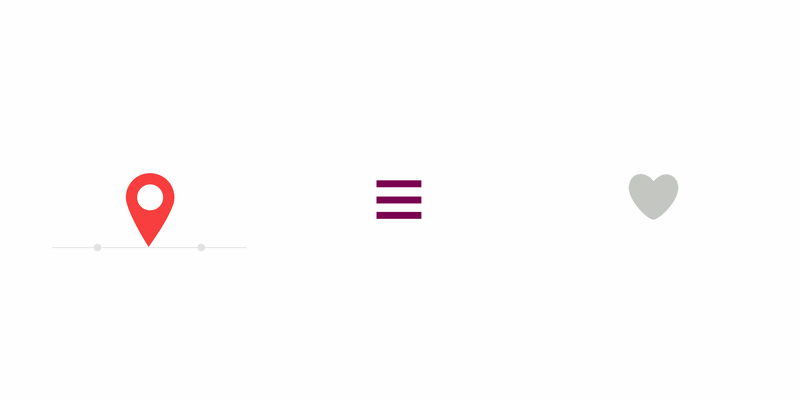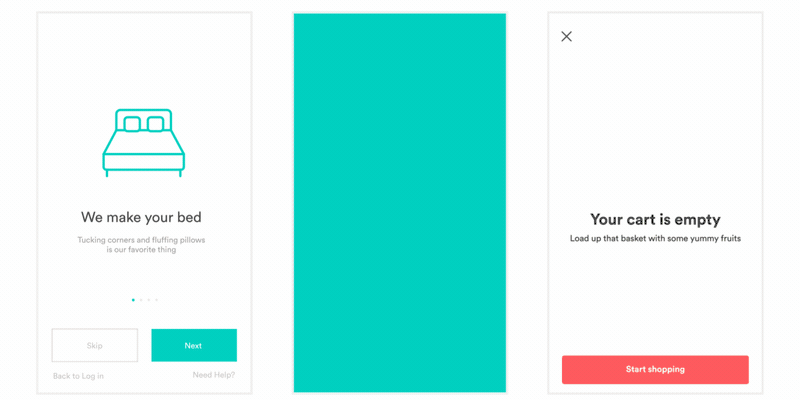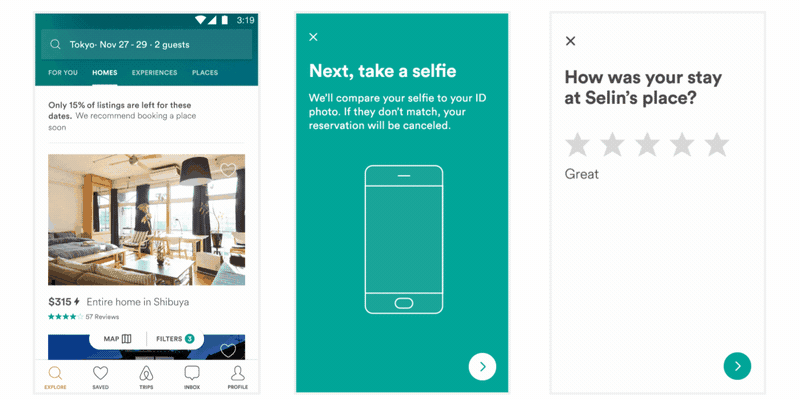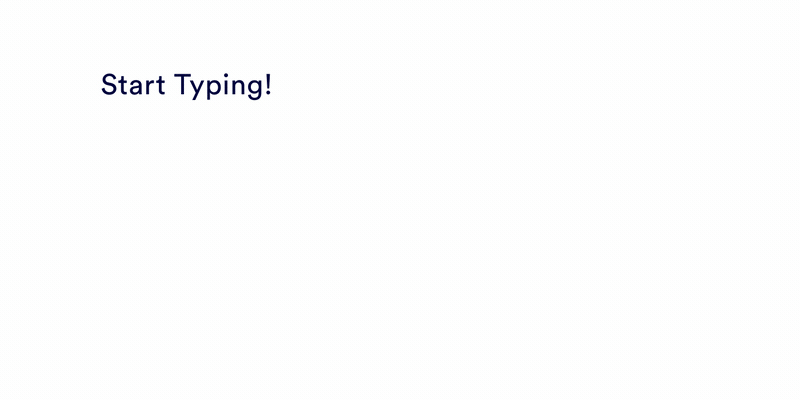Lottie component for React Native (iOS and Android)
Lottie is a mobile library for Android and iOS that parses Adobe After Effects animations exported as JSON with bodymovin and renders them natively on mobile!
For the first time, designers can create and ship beautiful animations without an engineer painstakingly recreating it by hand.
Install lottie-react-native (latest) and lottie-ios (3.2.3):
yarn add lottie-react-native
yarn add [email protected]
or
npm i --save lottie-react-native
npm i --save [email protected]
Go to your ios folder and run:
pod install
_ IMPORTANT _
If you have issues linking your iOS project check out this StackOverflow thread on how to fix it.
If your app crashes on Android, means auto linking didn't work. You will need to make the following changes:
android/app/src/main/java/<AppName>/MainApplication.java
- add
import com.airbnb.android.react.lottie.LottiePackage;on the imports section - add
packages.add(new LottiePackage());inList<ReactPackage> getPackages();
android/app/build.gradle
add implementation project(':lottie-react-native') in the dependencies block
android/settings.gradle
add:
include ':lottie-react-native'
project(':lottie-react-native').projectDir = new File(rootProject.projectDir, '../node_modules/lottie-react-native/src/android')
Install lottie-react-native (3.0.2) and lottie-ios (3.0.3):
yarn add [email protected]
yarn add [email protected]
or
npm i --save [email protected]
npm i --save [email protected]
Use react-native link to add the library to your project:
react-native link lottie-ios
react-native link lottie-react-native
Link the native iOS code by running:
npx pod-install
_ IMPORTANT _
If you have issues with your iOS project, open the Xcode project configuration and add the Lottie.framework as Embedded Binaries.
Apps that use static Xcode project linking need to set iOS deployment version to iOS 12 or switch to CocoaPods-based linking (using frameworks) or downgrade lottie-react-native to version 2.6.1.
Auto Embed
The following fastlane will auto embed the missing Lottie.framework file:
desc "Add Lottie.framework to Embedded Binaries"
lane :add_lottie_framework do
lottie_xcodeproj_path = '../../node_modules/lottie-ios/Lottie.xcodeproj'
if File.exist?(lottie_xcodeproj_path)
project_location = '../ENV["GYM_SCHEME"].xcodeproj'
target_name = 'ENV["GYM_SCHEME"]'
framework_name = 'Lottie.framework'
# Get useful variables
project = Xcodeproj::Project.open(project_location)
target = project.targets.find { |target| target.to_s == target_name }
frameworks_build_phase = target.build_phases.find { |build_phase| build_phase.to_s == 'FrameworksBuildPhase' }
# Add new "Embed Frameworks" build phase to target
embed_frameworks_build_phase = target.new_copy_files_build_phase('Embed Frameworks')
embed_frameworks_build_phase.symbol_dst_subfolder_spec = :frameworks
# Get reference to Lottie.framework file
objects = project.objects.select { |obj| obj.isa == 'PBXContainerItemProxy'}
lottie_ios = objects.find { |object| object.remote_info == 'Lottie_iOS' }
objects = project.objects.select { |obj| obj.isa == 'PBXReferenceProxy'}
framework_ref = objects.find { |object| object.remote_ref == lottie_ios }
# Add framework to target as "Embedded Frameworks"
build_file = embed_frameworks_build_phase.add_file_reference(framework_ref)
frameworks_build_phase.add_file_reference(framework_ref)
build_file.settings = { 'ATTRIBUTES' => ['CodeSignOnCopy', 'RemoveHeadersOnCopy'] }
project.save
end
end
Install lottie-react-native (2.5.11) and lottie-ios (2.5.3):
yarn add [email protected]
yarn add [email protected]
or
npm i --save [email protected]
npm i --save [email protected]
Use react-native link to add the library to your project:
react-native link lottie-ios
react-native link lottie-react-native
Note: If you are using react-native version 0.60 or higher you don't need to link lottie-react-native.
Go to your ios folder and run:
pod install
_ IMPORTANT _
If you have issues with your iOS project, open the Xcode project configuration and add the Lottie.framework as Embedded Binaries.
Apps that use static Xcode project linking need to set iOS deployment version to iOS 12 or switch to CocoaPods-based linking (using frameworks) or downgrade lottie-react-native to version 2.6.1.
_ IMPORTANT _ Not all After Effects features are supported by Lottie. If you notice there are some layers or animations missing check this list to ensure they are supported.
(If you are using TypeScript, please read this first)
LottieView can be used in a declarative way:
import React from 'react';
import LottieView from 'lottie-react-native';
export default class BasicExample extends React.Component {
render() {
return <LottieView source={require('./animation.json')} autoPlay loop />;
}
}Additionally, there is an imperative API which is sometimes simpler.
import React from 'react';
import LottieView from 'lottie-react-native';
export default class BasicExample extends React.Component {
componentDidMount() {
this.animation.play();
// Or set a specific startFrame and endFrame with:
this.animation.play(30, 120);
}
render() {
return (
<LottieView
ref={animation => {
this.animation = animation;
}}
source={require('../path/to/animation.json')}
/>
);
}
}Lottie's animation progress can be controlled with an Animated value:
import React from 'react';
import { Animated, Easing } from 'react-native';
import LottieView from 'lottie-react-native';
export default class BasicExample extends React.Component {
constructor(props) {
super(props);
this.state = {
progress: new Animated.Value(0),
};
}
componentDidMount() {
Animated.timing(this.state.progress, {
toValue: 1,
duration: 5000,
easing: Easing.linear,
}).start();
}
render() {
return (
<LottieView source={require('../path/to/animation.json')} progress={this.state.progress} />
);
}
}Changing color of layers:
import React from 'react';
import LottieView from 'lottie-react-native';
export default class BasicExample extends React.Component {
render() {
return (
<LottieView
source={require('../path/to/animation.json')}
colorFilters={[{
keypath: "button",
color: "#F00000"
},{
keypath: "Sending Loader",
color: "#F00000"
}]}
autoPlay
loop
/>
);
}
}You can find the full list of props and methods available in our API document. These are the most common ones:
| Prop | Description | Default |
|---|---|---|
source |
Mandatory - The source of animation. Can be referenced as a local asset by a string, or remotely with an object with a uri property, or it can be an actual JS object of an animation, obtained (for example) with something like require('../path/to/animation.json'). |
None |
style |
Style attributes for the view, as expected in a standard View. |
The aspectRatio exported by Bodymovin will be set. Also the width if you haven't provided a width or height |
loop |
A boolean flag indicating whether or not the animation should loop. | true |
autoPlay |
A boolean flag indicating whether or not the animation should start automatically when mounted. This only affects the imperative API. | false |
colorFilters |
An Array of layers you want to change the color filter. | [] |
View more documentation, FAQ, help, examples, and more at airbnb.io/lottie






